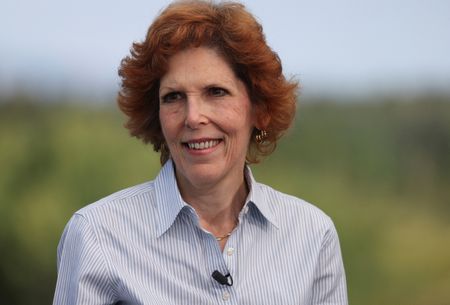 1
1 1
1
By Michael S. Derby
(Reuters) – Federal Reserve Bank of Cleveland President Loretta Mester said Friday that very strong hiring data for last month didn’t change her view on the state of the employment sector, while noting upcoming data will drive her views of whether the Fed needs to hike rates again.
“With this one report, [the data] continues to say it’s a strong labor market, but it is getting a little bit less tight than we saw before,” Mester said in an interview on CNN International. “We also in that report saw that wage growth is tempering a bit,” the official added.
Mester spoke to the television channel following the release of the September jobs report, which showed the U.S. added a bigger-than-expected 336,000 jobs last month and upwardly revised the prior month’s job gain, with a steady 3.8% unemployment rate.
The strength of the jobs data renewed bond market worries about additional Fed rate hikes which had receded among many investors.
Several economists noted the softening earnings data in the report, evidence that inflation pressures continued to ebb, reducing pressure on the Fed to hike rates further.
In recent comments Mester has noted that she penciled in at the September Fed meeting one more increase by year end in the current 5.25% to 5.5% federal funds target rate range, noting she would likely favor pulling the trigger if the economy presses forward on its current path.
In the interview, Mester gave no firm hints on her outlook. “We are basically at or near” the peak of the tightening campaign and the main question is how long the Fed should keep rates high to bring inflation back to 2% by the end of 2025, she said.
“What we’ve seen in the economy so far is that it’s been a very resilient economy,” Mester said, adding “economic growth has been strikingly strong and yet we’re still making progress on inflation.”
“We’re data dependent but not data point dependent,” and there are more numbers between now and the next Fed meeting, Mester said, noting she wants to see that data before making her own call on what needs to happen with monetary policy.
(Reporting by Michael S. Derby; editing by Diane Craft and David Gregorio)